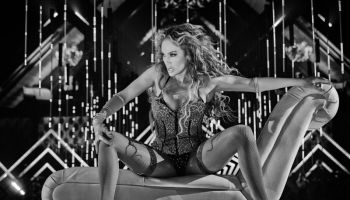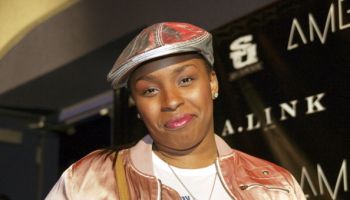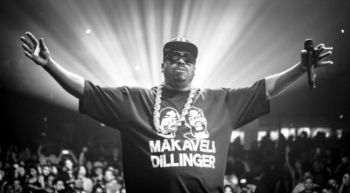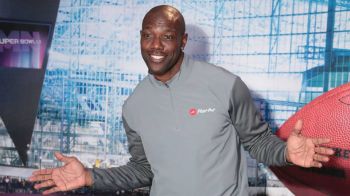5 Questions with Robert Glasper on ‘Black Radio’ and Getting Black Audiences To Like Jazz Again
By Yolanda Sangweni
<!—->
He’s one of the most respected jazz pianists on the scene, but don’t be surprised when Robert Glasper busts out and plays an R&B favorite like Floetry’s “Say Yes” during a set.
Besides jazz, Glasper has served as musical director to R&B singer Maxwell and rapper Yasiin Bey (a.k.a. Mos Def). His fifth album, Black Radio, merges his greatest loves: jazz and “urban” (read: hip-hop and soul) music, and features collaborations with artists like Yasiin, Erykah Badu, Lalah Hathaway and more. We spoke with Glasper about the new album, jazz’s waning appeal among African Americans, and why he’s the guy to change that.
ESSENCE.com: First of all, what’s in the water in Houston? So many talented people come from there — Erykah Badu, Roy Hargrove, you…
ROBERT GLASPER: It’s our high school [Badu, Hargrove and Glasper all attended High School for the Performing and Visual Arts in Houston]. It’s funny because when you go to Houston there’s no real music scene, but everyone with talent gravitated toward this one school. And when you play jazz at a young age, that’s not normal, so you get nice friendly competition.
ESSENCE.com: A reviewer recently compared you to Miles Davis because despite being a jazz musician, you’ve embraced contemporary music in the same way he did.
GLASPER: It’s a natural progression for me, just like him. He always wanted to keep it moving and do new things and take from his surroundings. That’s the way to keep your fan base current and hip. Jazz needs to do that — otherwise you’ll be playing old music and the only people who are gonna have any kind of connection will be be old people. I definitely think it’s important to play music that’s of my generation because that’s what I’m close to.
ESSENCE.com: Your new album Black Radio features lots of non-jazz artists like Erykah Badu, Yasiin Bey (aka Mos Def), Lalah Hathaway, and Bilal. How did the concept come about?
GLASPER: It’s something that I always thought about when I first got signed but I wanted to make sure I solidify myself as a jazz pianist first and do jazz records. Otherwise as a Black kid, they will call you “hip-hop piano player” or something, and not want to give you the correct props. After that I wanted to move on. I felt like now was the best time to do it because I have a lot more friends that are in the mainstream arena. I literally just texted everyone like, “Hey, what’s up? I’m doing this record…” Everyone was like, “Yeah, cool, let’s do it.”
I wanted to do covers that people knew. I chose “Cherish the Day” because whether you’re Black, White or whatever, most people love Sade. And then with a song like Nirvana’s “Smells Like Teen Spirit,” that’s a rock song that everyone knows. And I’ve always heard Erykah Badu singing a jazz standard, so I asked her to do “Afro Blue.”
ESSENCE.com: You play jazz, but when you look out to the audience you’re not seeing a lot of African-Americans. What are your thoughts on that?
GLASPER: I think the genre needs to catch up and be relevant, because most people that play the music are stuck in an old era. No one is playing the music of 2012. That’s the disconnect right there. When you do see people of color at a jazz show they’re usually older. The average person is probably not coming to check you out as a jazz artist because you’re playing music that they don’t know. I’ve tried to change that, and my audience is getting a lot Blacker. I’ve had a club tell me, “Don’t take this the wrong way, but we’ve never had this many Black people in here.” I get that quite often.
ESSENCE.com: Aren’t you afraid of ruffling a few feathers in the jazz community?
GLASPER: No, not at all, because that’s the truth. Jazz has become less Black and more European. Not many Black people are playing it anymore so the sound changes, and when the sound changes, the audience changes. My audience is younger and more modern because I’m playing hip-hop and soul music they can identify with.
Click here to listen to tracks off the Robert Glasper Experiment’s latest album, Black Radio.














